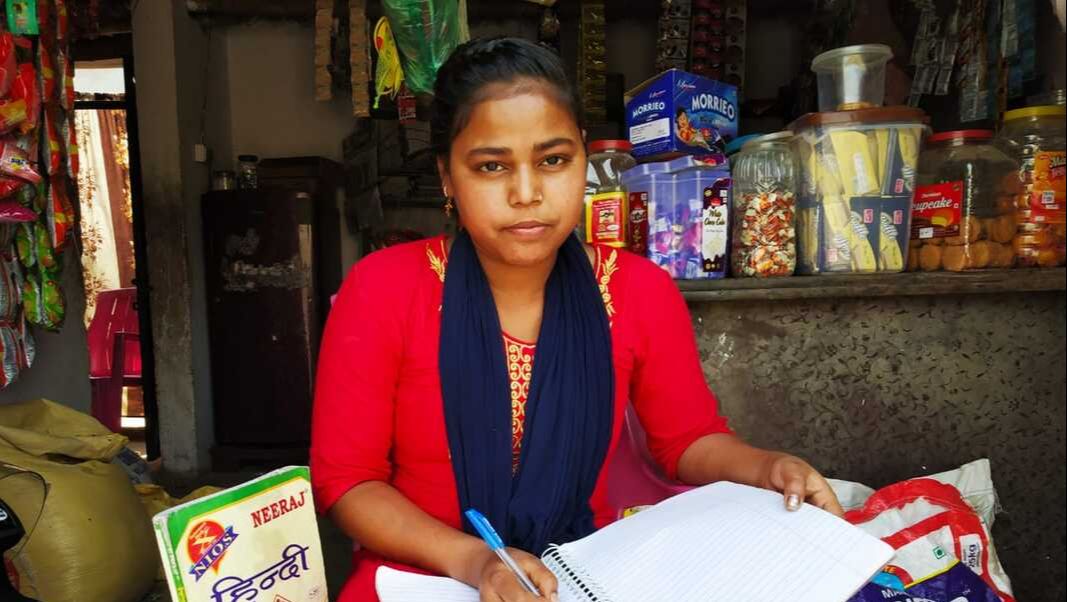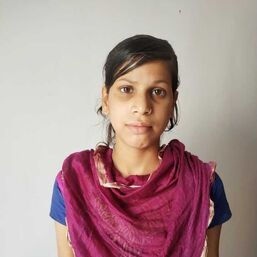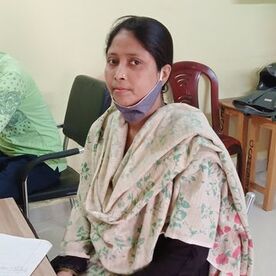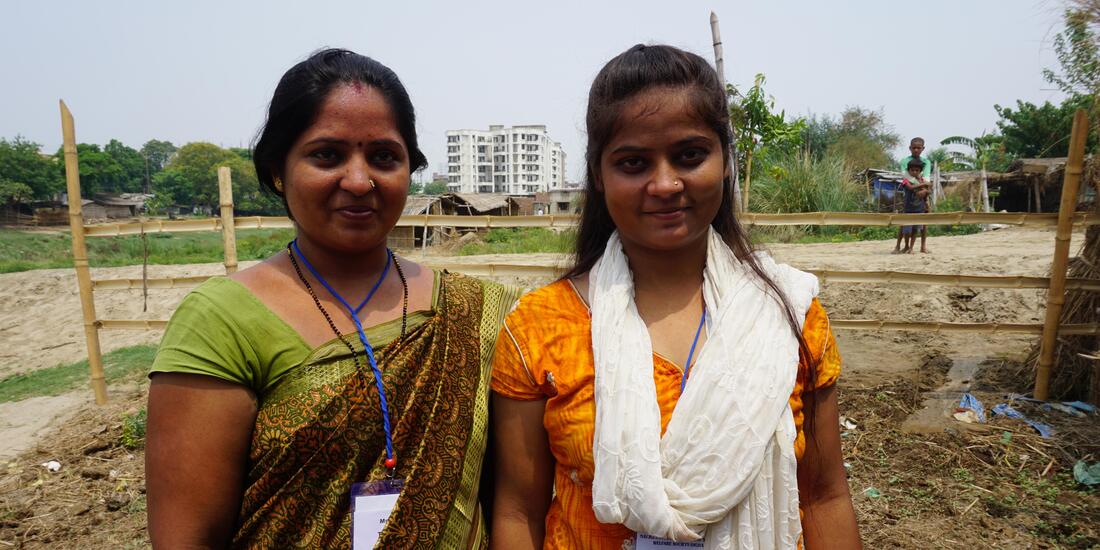|
Poonam attended a government school in India until seventh grade. This was when her parents pulled her out of school despite her protests, so that she could work to support her family’s increasing household expenses. At just 17, her parents then made arrangements for her to marry a local boy. Child marriage puts an end to childhood. It impacts young girls’ right to education and puts them at risk of violence, exploitation and abuse. Girls who are married as children are less likely to be in school and they struggle to earn money and contribute to the community. They are also more likely to have children while they are still children themselves and are more at risk of dying due to complications during pregnancy and childbirth. It is estimated that 1.5 million girls under 18 get married in India each year, making it home to the largest number of child brides in the world. Dalit children, like Poonam, as members of the lowest caste in India are especially at risk of child marriage and face discrimination at almost every level. Our programme in India looks to change this by creating protective environments for Dalit children in and surrounding Patna in Bihar State. We know that access to education and increased literacy amongst girls and mothers can help to reduce instances of child marriage and protect young girls from the practice. So, we work with our local partner in India, NESWSD to encourage community advocacy and support over 970 children to access education through 31 Learning Centres and four new Open Schooling centres (where older children are supported to get secondary school qualifications). We also work closely with parents to help them realise the value of education and encourage them to let their children continue their studies. This all helps to reduce instances of child marriage and child labour and ensures that children, especially girls, receive the education they deserve. They can now hope for a better future and break out of the cycle of poverty, abuse and exclusion. When our Open Schooling Centre opened in Bindtoli last year, Poonam hoped she might be able to go back to school. But her parents were busy making final arrangements for her marriage. She didn’t want to get married and asked one of the teachers at the centre for help. Along with staff from our partner organisation, they spoke with Poonam’s parents. They were able to convince them to see the importance of Poonam’s education and how marriage so young could harm their daughter. After the discussion, Poonam’s parents agreed to enroll her into the Open Schooling Centre. Poonam is now working to get her secondary school qualifications. She is still able to provide for her family by working in the family shop after her studies are done.
Anjum wants to help other women in a similar situation and said: “There are many like me who have lost their education due to child marriage. I would want all of them to look for opportunities for continued education. I am ready to support any such person in my village or nearby”. Nitu and Anita (pictured above) came from a poor family and had to stop their studies early to support their family. They were able to get teaching jobs at our Learning Centres after joining one of the Women’s Groups we support in the area. As a result Nitu has been able to continue her studies alongside her teaching job. She said “I feel very happy about being able to continue my studies along with the children I am teaching. I want all women like me not to give up due to adverse situations but find ways to continue their study”. Anita never went to school and wants to use her role as a teacher now to make a difference. She’s dedicated to making sure other children have the chance that she didn’t have. A big focus of the programme is also to support peaceful advocacy for issues that affect the Dalit community. One of these is the prevention of child marriage. This year, on Human Rights Day, 38 Child Parliamentarians and 310 children from the centres campaigned against child labour and child marriage. Child Parliament members led the day, giving clear messages to the community and encouraging children to create posters about both issues. Our programme in India empowers Dalit communities to realise their rights. We support women and girls to access education and training so that they can realise their full potential and create better lives, breaking the cycle of poverty. Find out more about what we do to transform the lives of of Dalit communities in India >> Support usComments are closed.
|
RECEIVE OUR EMAILSBlog Categories
All
Archives
July 2024
|
|
JOIN US ON SOCIAL MEDIA
|
Annual Report | Contact Us | Jobs | Media Centre | Resources | Shop
Accessibility & Policies: Accessibility | Equity, Diversity & Inclusion Policy | Complaints| Privacy Policy | Safeguarding
Accessibility & Policies: Accessibility | Equity, Diversity & Inclusion Policy | Complaints| Privacy Policy | Safeguarding
Children on the Edge, 5 The Victoria, 25 St Pancras, Chichester, West Sussex, PO19 7LT, UK | 01243 538530 | [email protected]






 Give monthly
Give monthly Fundraise for us
Fundraise for us RSS Feed
RSS Feed
